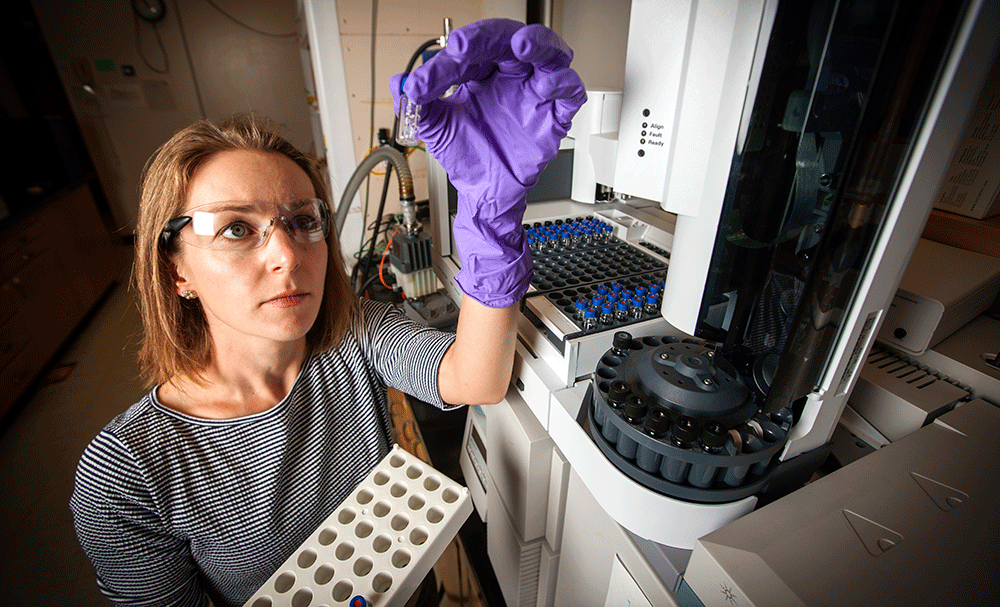
Lawrence Livermore National Laboratory researcher Sarah Baker measures the amount of methanol produced by the enzyme-embedded polymer.
Image: George Kitrinos/LLNL
A new study has emerged from Lawrence Livermore National Laboratory demonstrating that through the combination of biology and 3-D printing, scientists can turn methane into methanol.
In recent years, methanol has shown a lot of promise as a clean burning fuel. According to the U.S. Environmental Protection Agency, the alcohol’s high-performance and low emission levels could make it an ideal alternative to gasoline for cars.
On the other hand, methane is a potent greenhouse gas that is adding to the acceleration of climate change. While the chemical compound does not stay in the atmosphere as long as carbon dioxide, it is 84 times more potent due to its ability to effectively absorb the sun’s heat and warm the atmosphere. In fact, methane has outpaced carbon dioxide in climate change impact over the least 100 years, with methane’s impact being 25 times greater.
The development from Lawrence Livermore National Laboratory not only provide a clean burning fuel alternative, it effectively helps combat the pressing effects of climate change.

